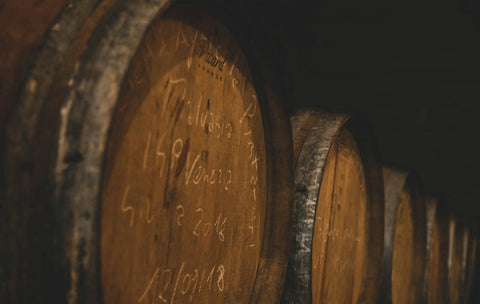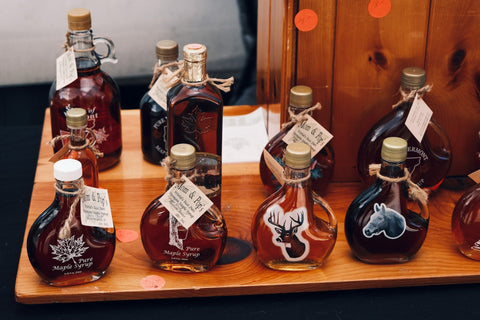Whiskey, one of the world’s most beloved spirits, carries a fascinating history that spans centuries, cultures, and continents. From its ancient origins to its modern-day variations, whiskey has evolved into a global phenomenon enjoyed by connoisseurs and casual drinkers alike. In this guide, we’ll explore the origins of whiskey, how it evolved over time, and its impact on global drinking culture.

The Origins of Whiskey: Where It All Began
The exact origins of whiskey remain debated, but most historians agree that its roots trace back to ancient distillation techniques practiced by early civilizations.
Early Distillation and the Birth of Spirits
-
The process of distillation was first developed around 2000 BC by the Mesopotamians and later refined by the Egyptians, Greeks, and Arabs.
-
Distillation was initially used for creating perfumes and medicines rather than alcoholic beverages.
-
By the Middle Ages, distillation techniques had spread to Europe, where monks and alchemists experimented with turning fermented grains into a distilled spirit.
The Rise of Aqua Vitae ("Water of Life")
-
In medieval Europe, distilled spirits were known as "aqua vitae" (Latin for "water of life").
-
Monks in Ireland and Scotland were among the first to refine the process of distilling fermented grain mash into what would later become whiskey.
-
The earliest written record of whiskey production comes from 1405 in Ireland, where monks were noted for distilling “uisce beatha” (Irish for “water of life”), which later evolved into the word "whiskey."
The Evolution of Whiskey Across the World
The Emergence of Scotch and Irish Whiskey (15th–18th Century)
-
The Scottish and Irish perfected whiskey-making, using barley as a primary grain.
-
In 1608, Bushmills Distillery in Ireland was granted one of the earliest official licenses to produce whiskey.
-
Scotch whiskey became known for its use of peat smoke during malting, giving it a distinctive smoky flavor.
-
The 1707 Act of Union between England and Scotland led to heavy taxation on whiskey production, pushing much of the industry underground.
Whiskey in America: The Birth of Bourbon (18th–19th Century)
-
Scottish and Irish immigrants brought whiskey-making traditions to North America in the 1700s.
-
In Kentucky and Tennessee, corn became the dominant grain, giving birth to bourbon whiskey.
-
The Whiskey Rebellion of 1794 occurred when the U.S. government imposed a tax on whiskey, leading to protests among farmers and distillers.
-
By the 1800s, bourbon whiskey became a cornerstone of American drinking culture, with brands like Jim Beam and Old Forester leading the way.
The Impact of Prohibition (1920-1933)
-
The U.S. Prohibition Era (1920-1933) nearly destroyed the whiskey industry, as alcohol production and sales were banned.
-
Some distilleries survived by producing whiskey for "medicinal purposes," requiring a doctor’s prescription.
-
After Prohibition ended, whiskey production boomed again, but Scotch whisky dominated the global market due to its strong export industry.
Modern Whiskey Trends (20th–21st Century)
-
In the mid-20th century, Japanese distilleries like Yamazaki and Nikka emerged, producing premium whiskey inspired by Scottish techniques.
-
The 21st century has seen a resurgence of craft whiskey distilleries across the U.S., Scotland, Ireland, and beyond.
-
Collectible and limited-edition whiskeys have skyrocketed in popularity, with bottles fetching thousands at auction.
Whiskey Today: A Global Spirit
Today, whiskey remains a beloved and diverse spirit enjoyed worldwide. Some of the most famous whiskey-producing countries include:
✅ Scotland – Known for single malts and smoky peat-flavored Scotch.
✅ Ireland – Produces smooth, triple-distilled whiskey, like Jameson.
✅ United States – Home to bourbon and Tennessee whiskey, such as Jack Daniel’s.
✅ Japan – A rising star in whiskey craftsmanship, blending elegance and precision.
✅ Canada – Known for smooth, rye-based whiskey.
Whiskey has transcended borders, becoming a symbol of craftsmanship, culture, and celebration.
Final Thoughts: The Legacy of Whiskey
From its humble origins in ancient distillation to its global influence today, whiskey has stood the test of time. Whether enjoyed neat, on the rocks, or in a cocktail, whiskey carries centuries of tradition in every sip.
For those looking to explore the best of whiskey, Five Towns Wines & Liquors in New York offers a curated selection of premium whiskey from around the world. Stop by and find the perfect bottle to add to your collection!
🥃 What’s your favorite whiskey style? Let us know in the comments!


